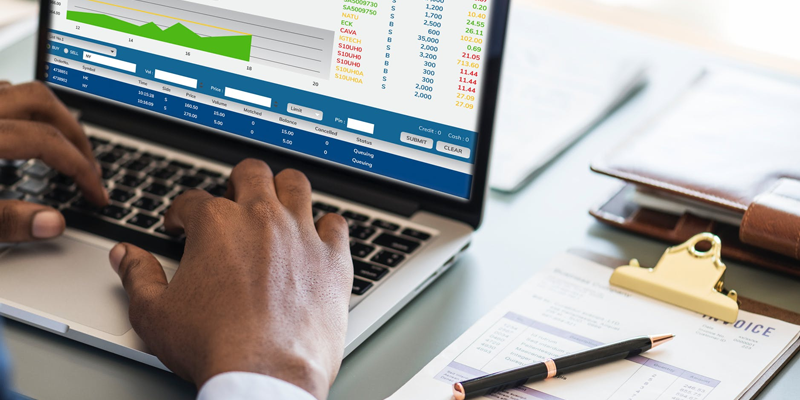
Excel Spreadsheets are now being the most loved item after calculator for accountants to manage basic accounting tasks. Depending upon your accounting and finance requirements, excel helps with basic tasks like bookkeeping, invoice management, etc.
Small business finance managers use excel as one of the most vital accounting tools. In comparison to large enterprises, small businesses need to handle lesser financial data. And for that excel is the best choice as it allows to focus on basic accounting tasks like forecasting and budget planning etc. Small business owners can do all of their bookkeeping in Excel.
Mass Data Entry – Using small business accounting software is very easy but when you consider mass data entry then no program is better suited than excel. Macros can spit out hours of human’s work in moments. To automate tasks, business owners can create macros such as formatting, filtering, and running basic analysis. Accountants can easily import large transaction datasets into accounting software.
Financial analysis through charts – Accountant can create pie charts to show business financial analysis visually. It can be used by both Nonprofit and profit companies to create annual reports with this visual aid to communicate in a convenient way.
Ease of Sharing - One of the most important benefits of excel is – ease of sharing. When it comes to sharing financial data with any investors or lenders then business owners can send them either a PDF or Excel file.
Compare financial data - Excel helps to compare financial datasets like total accounts payable versus receivable to calculate cash flow volume within a given period. You will get clear data, where company’s money is going and by using some of the functions you get data, which groups generate the most revenue for your business.
Customizable reports generations – You can easily create template-based reports included with tables and charts. Further, it can be reused for tasks like invoice management and estimating cash flow volumes. With the increasing need to add more data, you can customize report without having to create a new template from the scratch.
PivotTables - This is the most powerful excel feature, based on a selected cell range it summarizes complex datasets. It recognizes data in more logical way. This tool is used by accountants to process financial data. When it needs to summarize raw accounting data and sorting it into different categories then you can use this feature.
Formulas – Excel formulas significantly increase speed of business expense tracking and analysis.
What-if analysis – This tool will help to forecast results by changing datasets in a formula. It means without changing or removing the primary dataset, you can get a new result by using this. It helps in cash flow management and the overall budget and forecasting processes. Test various budget estimates in a graphical format and change the forecast for these estimates based on the modification made in budget data.
Forecast sheets – It helps users forecast data trends based on historical values. Instead of simply changing data values in a cell, you can predict trends in a graphical format. It is useful when you have cash flow data.
Templates – There are many ready-made templates in excel for sorts of accounting functions like invoices, budgeting, and more.
Creating Invoice – With the use of Excel, you can easily create professional bills (Invoice). Excel invoice templates automatically sum invoice line items, reducing the risk of human error.
Budgeting – Excel budgeting feature is more preferable than any accounting software. Simple to create and manage. As you move further with more business finance then you can create granular sub-budgets that roll up into business’s master budget.
Create expense reports – There are hundreds of expense report templates to choose from. Create and manage business expense.
Accounts receivable and accounts payable - Many small businesses track who owes them and whom they owe with an Excel spreadsheet. Business take records of money takes in and out. Excel can easily handle list of outstanding client invoices and business’s unpaid bills.
Bank reconciliations – This is the basic of bookkeeping. You need to compare company’s accounting records with its bank statements. You can put both side by side in Excel and quickly inspect any disagreements. Because of its no-frills interface, Excel prefers over any other accounting software.
To start using excel for small business accounting, you must have knowledge of Excel. Excel for accountant provides you comprehensive knowledge on how to use different Excel features and formulas in accounting. Excel skills for accounting must be improved with the latest update. Learn Some Excel Accounting Tips.
As you become familiar with the function of program, you can use it to manage business accounts easily.